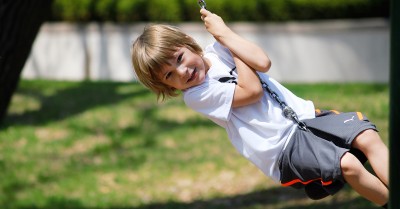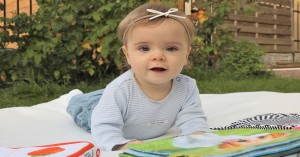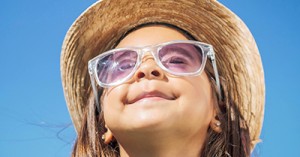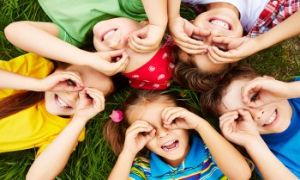Outdoor play is enjoyable for children and important for their growth and development.
When outdoors children are able to run, skip, jump, climb, throw, hop and catch and use their outside voices, which provides a healthy break from being inside. Being outside gives children the opportunity to stretch their muscles, breathe fresh air and enjoy the freedom of space.
Many times outdoor settings are much more than physical activity. They provide children with opportunities for learning and what goes on outdoors. Science for instance, comes alive as children explore nature and make first hand observations. While outside, children are using all their senses to discover their world. Children see leaves changing colour, touch trees, hear birds or simply smell the air.
Benefits Of Outdoor Area
Just as you would design and arrange the indoor space. You must give careful thought to ensure that children are exposed to activities and materials that support growth and development. Listed below are some suggested learning objectives that support a child's overall development.
- Children develop decision making (choosing an outdoor activity).
- Enables children to re-enact life experiences (playing as a firefighter, painting a fence with water).
- Encourages children to develop and co-ordinate hand/eye movements (catching, throwing etc).
- Helps children develop gross motor skills (climbing, swinging, jumping etc).
- Children have a better understanding of spatial awareness (swinging, climbing up, down, over or under).
- Develops children's balance (using the balance equipment, walking on different surfaces).
- Increases children's vocabulary (learning new names for natural objects, plants, birds animals).
- Demonstrates children's social skills (participating in social play with other children).
Being outdoors provides an endless amount of opportunities for children to explore and discover. Children will begin to notice changes in the weather, listen to different sounds and explore natural objects, which you can use to encourage further learning outdoors with children.
Linking To The EYLF
- 1.3 – Children develop knowledgeable and confident self‐identities.
- 2.4 – Children become socially responsible and show respect for the environment.
- 3.2 ‐ Children take increasing responsibility for their own health and physical wellbeing.
- 4.4 – Children resource their own learning through connecting with people, place, technologies and natural and processed materials.
- 5.1 – Children interact verbally and non‐verbally with others for a range of purposes.
To download the poster for free: Benefits Of Outdoor Area







 Open ended questions cannot be responded to with one word answers such as yes or no. These types of questions enables a child to provide
Open ended questions cannot be responded to with one word answers such as yes or no. These types of questions enables a child to provide During your child’s preschool years, an important milestone begins to emerge. This is the development of pre-writing skills. Pre-writing skills are used to encourage, develop
During your child’s preschool years, an important milestone begins to emerge. This is the development of pre-writing skills. Pre-writing skills are used to encourage, develop An Acknowledgment of the Country is a way of showing respect for the Traditional Owners and can be given by both non-Indigenous people and Aboriginal
An Acknowledgment of the Country is a way of showing respect for the Traditional Owners and can be given by both non-Indigenous people and Aboriginal Open ended materials enables children to play freely. They are objects that have no rules to follow, use or function. Raw materials that can be
Open ended materials enables children to play freely. They are objects that have no rules to follow, use or function. Raw materials that can be Language plays an important role in a child’s development. It enables a child to communicate effectively with their family, learn at school, socialize with friends,
Language plays an important role in a child’s development. It enables a child to communicate effectively with their family, learn at school, socialize with friends, Like adults, children have to deal with their own stress in life. Moving house, starting a new school, preparing for a new sibling - these are
Like adults, children have to deal with their own stress in life. Moving house, starting a new school, preparing for a new sibling - these are Playdough is such a versatile material. It provides numerous benefits to children as they manipulate it, it is safe and soothing and provides children with
Playdough is such a versatile material. It provides numerous benefits to children as they manipulate it, it is safe and soothing and provides children with Teaching children about sustainability enables them to appreciate and respect the natural environment. Early childhood services can provide meaningful hand on learning experiences in order
Teaching children about sustainability enables them to appreciate and respect the natural environment. Early childhood services can provide meaningful hand on learning experiences in order Recycling is an important concept that teaches children to care for the environment. It encourages children to be responsible and show a growing appreciating for
Recycling is an important concept that teaches children to care for the environment. It encourages children to be responsible and show a growing appreciating for Incursions provide children with the opportunity to explore meaningful learning experiences in the comfort of their early childhood service. The following provides a directory of
Incursions provide children with the opportunity to explore meaningful learning experiences in the comfort of their early childhood service. The following provides a directory of


